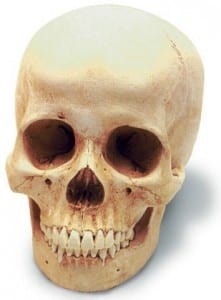Forensic Osteology Module – An MSc Student Perspective
By uctzsh0, on 25 March 2016
On the first day of class, we were examining cadavers. On the second day of class, I was dissecting an arm. On the third day of class, we were boiling, or as it’s called, macerating, a defleshed limb. For the forensic osteology module, we were thrown into the deep end right from day one.
In this module, we learned what the role of a forensic osteologist entails, and their place in a criminal investigation. We also learned the anatomy of the human skeleton, with each student in the class being provided one at their desk for every lecture. Being able to hold the physical bone, instead of just looking at pictures really helps to solidify what you’re learning, as well as be more engaged with the content. We didn’t just work with bones though; we also learned how the whole body can aid a forensic investigation throughout all stages of the decomposition process.
The course culminated with a case study where, in small groups, we were given a bag filled with remains and extra pieces of evidence. Our task was to not only create a biological profile of who these bones belonged to (sometimes more than one person), but also suggest how they died and any other information we could infer from the evidence. This project helped to synthesize the material, and put into practice what I had learned throughout the course.
Forensic osteology was definitely one of my favourite modules this term, no bones about it.
2 Responses to “Forensic Osteology Module – An MSc Student Perspective”
- 1
-
2
Presenting Evidence in Court: Courtroom Assessment Day | UCL Centre for the Forensic Sciences Blog wrote on 15 July 2016:

[…] Forensic Osteology Module […]
 Close
Close



Check out my first blog post on the UCL Forensic Sciences blog: https://t.co/oA13ZYeeTx